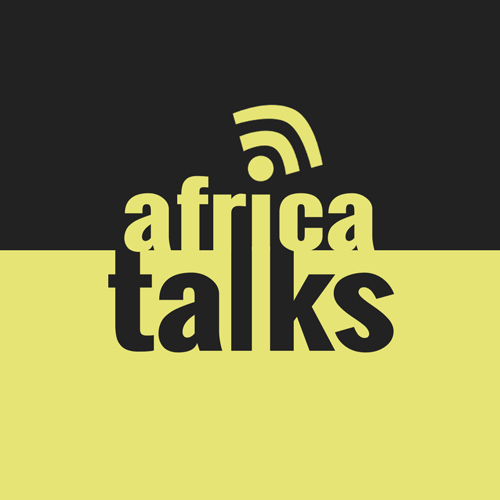Moving Forward
The Role of the International Criminal Court in Africa
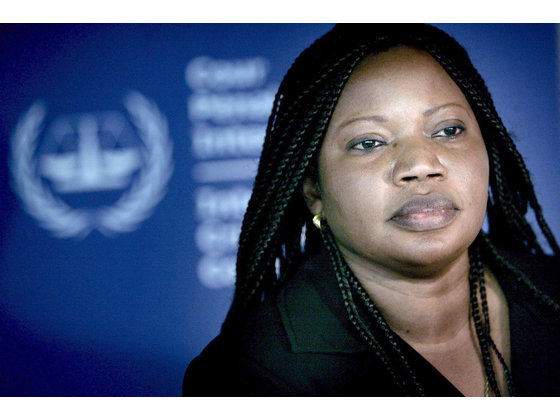
Moving Forward
The Role of the International Criminal Court in Africa
Africa on the Agenda: Conference on World Affairs in St. Petersburg
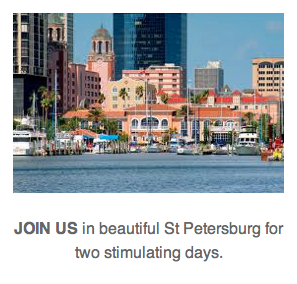 Initiated by Douglas McElhaney, a former ambassador to Bosnia and Herzegovina from 2004 to 2007, and hosted at the University of South Florida St. Petersburg, the first annual St Petersburg in the World Conference was held from March 28 to 29. The conference brought together a panel of experts to speak about important foreign policy issues. Speakers including former diplomats and ambassadors, academic experts, members of the military and the media who shared their experiences and expertise from across various fields. Critical international issues were examined with several of the speakers laying a particular emphasis on Africa. The subjects discussed were so diverse that I have decided to divide it into several sections for Africa Talks.
Initiated by Douglas McElhaney, a former ambassador to Bosnia and Herzegovina from 2004 to 2007, and hosted at the University of South Florida St. Petersburg, the first annual St Petersburg in the World Conference was held from March 28 to 29. The conference brought together a panel of experts to speak about important foreign policy issues. Speakers including former diplomats and ambassadors, academic experts, members of the military and the media who shared their experiences and expertise from across various fields. Critical international issues were examined with several of the speakers laying a particular emphasis on Africa. The subjects discussed were so diverse that I have decided to divide it into several sections for Africa Talks.
Part I: Africa and the International Criminal Court
 During the conference, the first topic on the agenda was “Africa Today: Breadbasket for the World or Continued Dependency?” This looked at several issues including agriculture, the economy and an overall look at governance and democracy around the continent. Dr. William Felice, a professor at Eckerd College who specializes in international politics, international law, international organization and human rights highlighted the continent’s complex juxtapositions of plight and promise. Most of the speakers agreed that Africa’s political, social and economic landscape is mixed, but all an international audience tends to hear about is “the plight of Africa, and it is most visible in Sudan, Chad, Congo, Northern Uganda, the Horn of Africa,” said Felice.
During the conference, the first topic on the agenda was “Africa Today: Breadbasket for the World or Continued Dependency?” This looked at several issues including agriculture, the economy and an overall look at governance and democracy around the continent. Dr. William Felice, a professor at Eckerd College who specializes in international politics, international law, international organization and human rights highlighted the continent’s complex juxtapositions of plight and promise. Most of the speakers agreed that Africa’s political, social and economic landscape is mixed, but all an international audience tends to hear about is “the plight of Africa, and it is most visible in Sudan, Chad, Congo, Northern Uganda, the Horn of Africa,” said Felice.
“We read about genocide, crimes against humanity and related development such as sexual violence against women, child soldiering, refugee displacement, poverty being prevalent and so on and we read about efforts to address it but they seem not adequate for example, the International Criminal Court attempt to address some of these issues.” Felice believes that the court can bring “justice or a modicum of justice for some of the victims of the horrors that we read about in the press.”
The Kenyan Elephant in the Room: Leaders Before the ICC
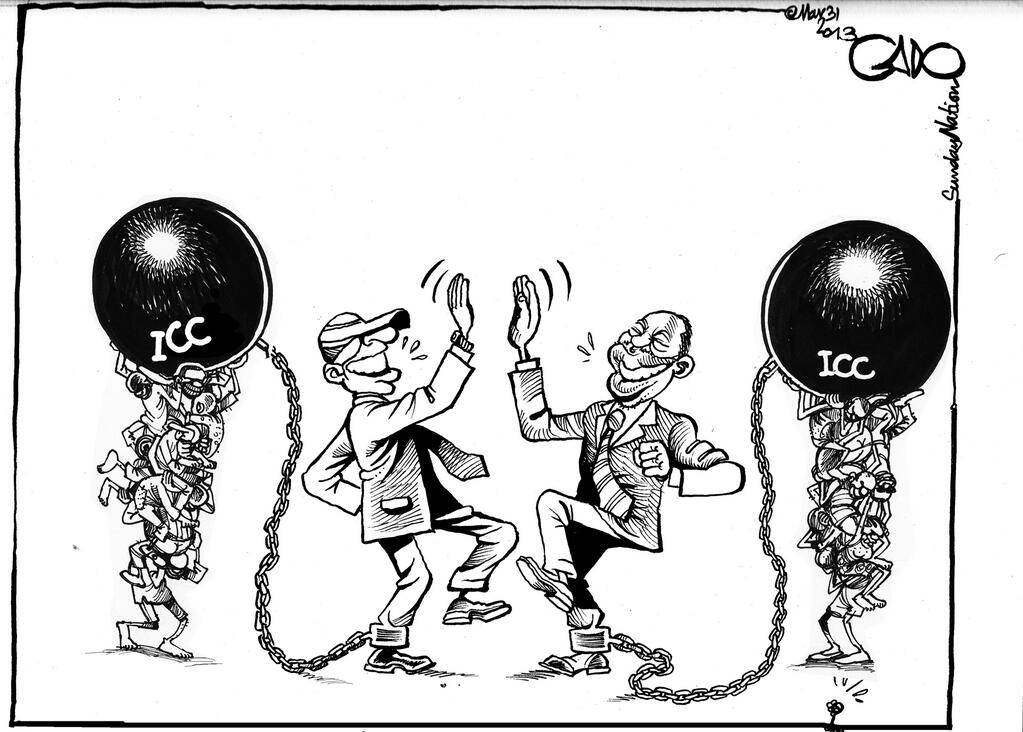 Kenya is an interesting example because it is a country where one can identify both plight and promise working side by side, Felice said. In 2010, Eckerd College launched an initiative including academic study, activism and a community awareness program, titled “The Plight and Promise of Africa.” Quoting Kenyan anti-corruption whistleblower John Githongo, Felice pointed to the heavy stew of factors existing in the nation: “Kenya is one of the most unequal societies in the world, when you have systemic corruption, conspicuous consumption and stark inequalities, and you ethnicize all these inequalities, that is absolutely toxic.” Corruption has been a well-documented problem in the country. A recurring issue also brought up during an interview with Ambassador Michael Ranneberger.
Kenya is an interesting example because it is a country where one can identify both plight and promise working side by side, Felice said. In 2010, Eckerd College launched an initiative including academic study, activism and a community awareness program, titled “The Plight and Promise of Africa.” Quoting Kenyan anti-corruption whistleblower John Githongo, Felice pointed to the heavy stew of factors existing in the nation: “Kenya is one of the most unequal societies in the world, when you have systemic corruption, conspicuous consumption and stark inequalities, and you ethnicize all these inequalities, that is absolutely toxic.” Corruption has been a well-documented problem in the country. A recurring issue also brought up during an interview with Ambassador Michael Ranneberger.
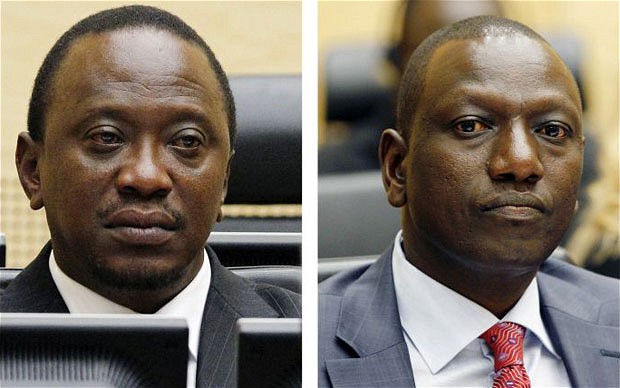 How does corruption play into Kenya’s politics and implementation of the rule of law? Well, author Michela Wrong has been taking heat for criticizing the 2013 elections after Kenya’s Supreme Court upheld the contested election for Uhuru Kenyatta. Wrong said “Courts are by nature conservative, so Saturday’s announcement was only to be expected. But in confirming the election of a man indicted by the International Criminal Court for allegedly orchestrating the ethnic cleansing that followed Kenya’s 2007 polls, Chief Justice Willy Mutunga did more than solve a national wrangle over a ballot count. He secured Kenya’s place as a shining international symbol of impunity.”
How does corruption play into Kenya’s politics and implementation of the rule of law? Well, author Michela Wrong has been taking heat for criticizing the 2013 elections after Kenya’s Supreme Court upheld the contested election for Uhuru Kenyatta. Wrong said “Courts are by nature conservative, so Saturday’s announcement was only to be expected. But in confirming the election of a man indicted by the International Criminal Court for allegedly orchestrating the ethnic cleansing that followed Kenya’s 2007 polls, Chief Justice Willy Mutunga did more than solve a national wrangle over a ballot count. He secured Kenya’s place as a shining international symbol of impunity.”
But critics such as the Bush-era U.S. diplomat Jendayi Frazer, took the opportunity to stand on a soap box to criticize the ICC and claimed that the court has veered off from its “ideals of global justice.” The irony in this is that Ms. Frazer’s record toward the rule of law in the Horn of Africa has been sketchy in principle during her time working in the region. She was instrumental in pushing to reopen a closed “final and binding” ruling by the Eritrea-Ethiopia Boundary Commission. That being the case, observers should pay close attention to understand why a former diplomat is slamming another U.S. diplomat from a subsequent administration.
I caught up with Mr. Felice after his presentation and asked two burning questions:
1) What should the role of the ICC be when an indicted candidate runs for election to a national office and wins?
2) How do you view criticism that claims the ICC has been politicized? How can the court move forward?
Stay tuned for more interviews about security, economy and the media in upcoming parts on Africa Talks.





